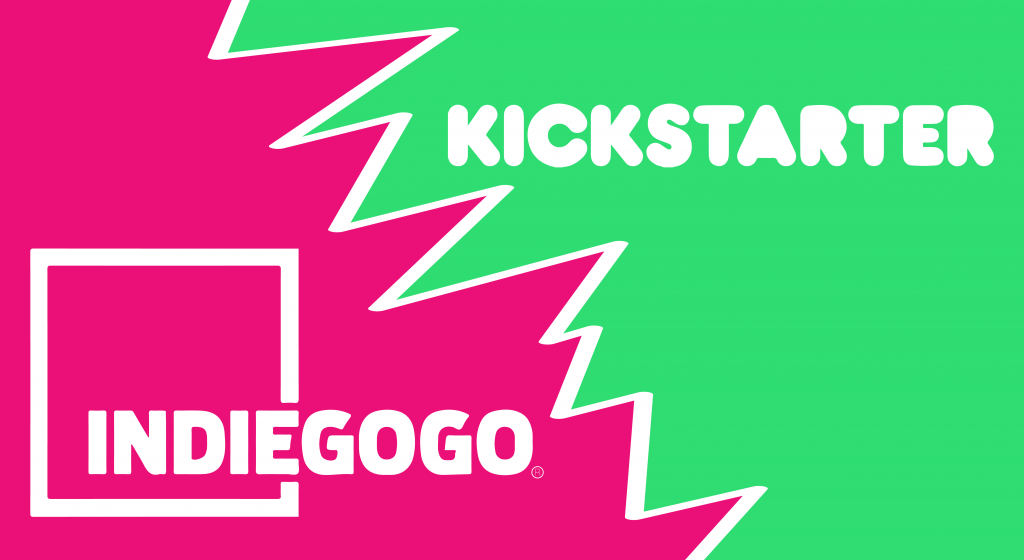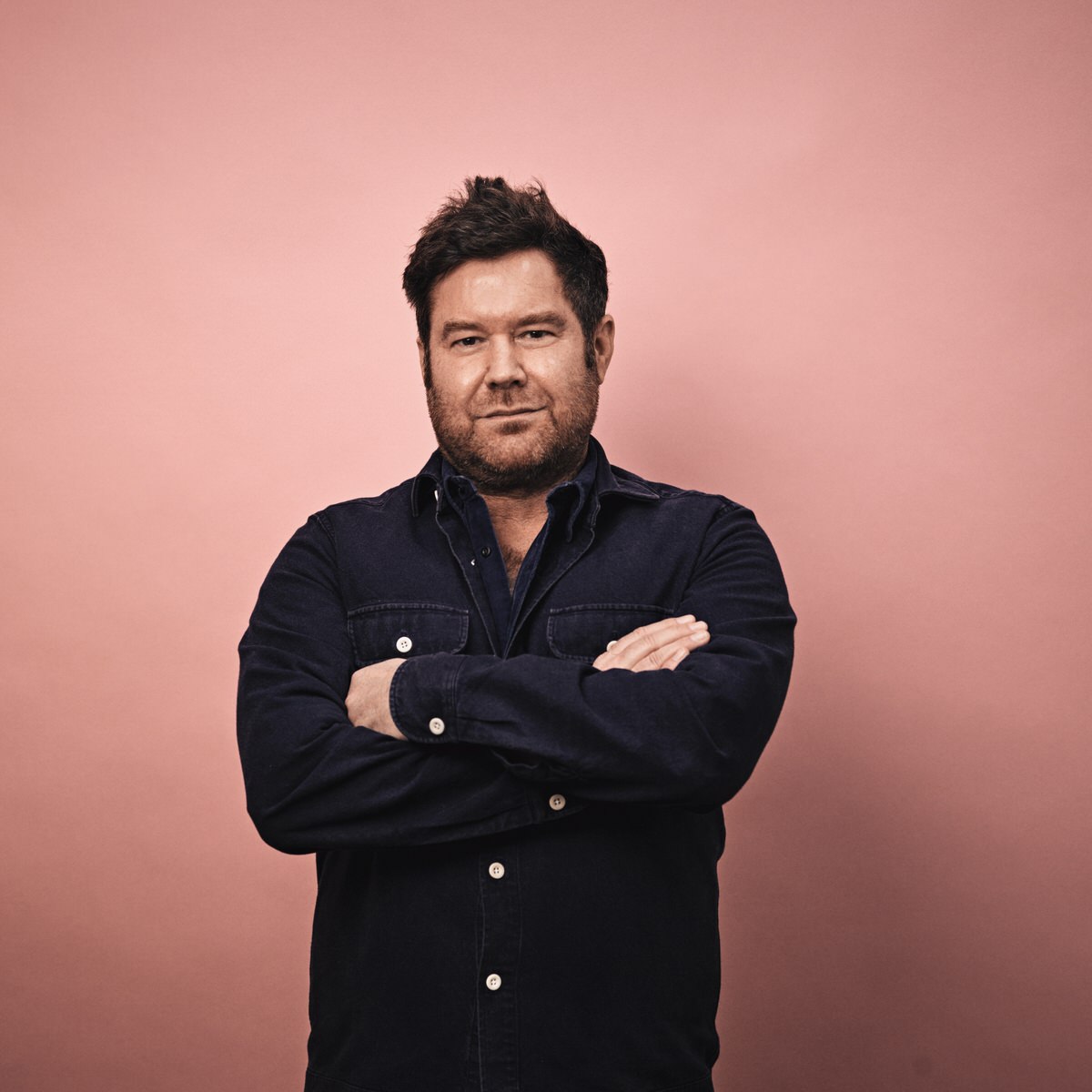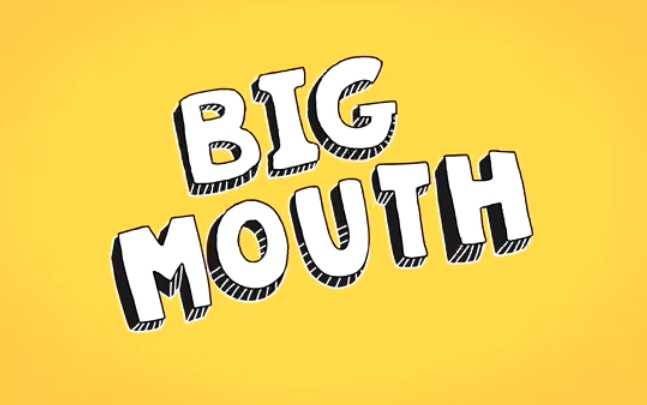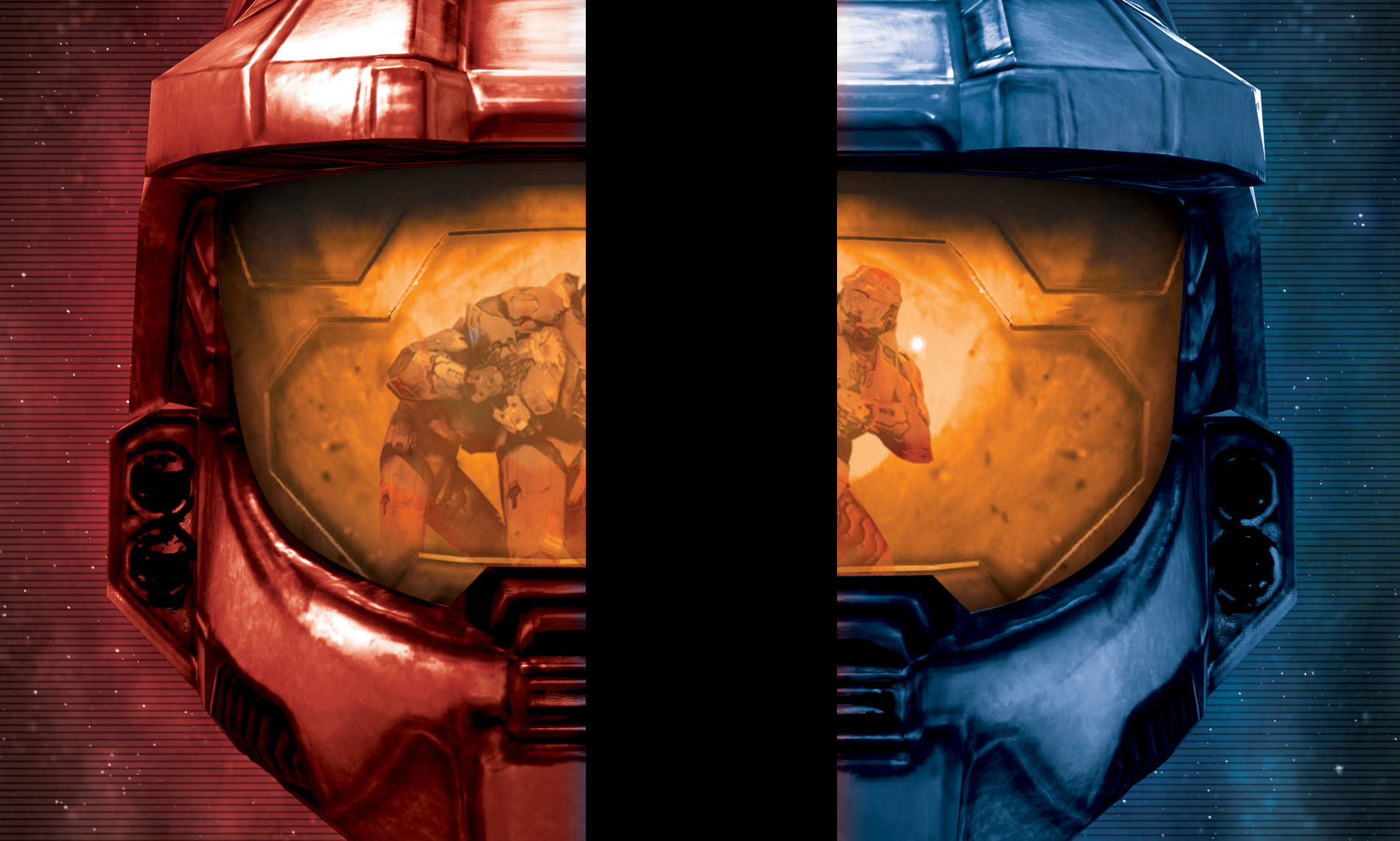Cowabunga Dude: Nouns Fest Co-founders Chris Waters And Eric Towner Discuss Their Radical Experiment
Nouns is a community-run organization that uses the proceeds of digital collectible sales to fund open-source art and other public works projects.
Nouns Fest returns for its Second Annual festival in Fall 2024 with over $1M to fund animated shorts. The festival aims to showcase what the best talent in animation can produce when given funding and total creative control of their work. Nouns Fest will fund the animated shorts with budgets ranging from $7,500 to $20,000. The shorts are required to use at least one of the Nouns digital art characters created by Nouns.
Nouns Fest Co-Founders Chris Waters and Eric Towner sat down with us to discuss the radical idea behind the festival and why keeping creative control in the hands of the artists is vital.
Matthew Swigonski: Could you talk about what led you guys to pursue a career in animation? Was there one particular moment or was it more of a gradual push?
Eric Towner: I mean, you have to go so far back into my childhood that we might as well get in a time machine. I fell in love with animation by watching movies and I loved the Disney stuff when I was growing up. I had a hard time paying attention in class, so I did flipbooks with all my textbooks. Any stack of Post-its was like fair game for me to just start drawing. And then from there, I got into clay animation and stop-motion with my toys.
And it’s kind of surreal to think that this thing that I loved as a kid would become an actual career. So there were some surreal moments when I got my first job working as a stop motion animator professionally. It was like ‘Wait this is like a paid thing? Are we sure because I’ll just do it for free? That’s fine with me too.’
Chris Waters: Yeah, my story in animation was more probably a little later than Towner as I was always a big comic book kid. I loved walking to my local comic book shop. So I think I came into it through comics. Then my parents had this old illustrated book by Gustav Dore, which was almost like storyboards. It was so cinematic and cool.
We didn’t have TV growing up. I didn’t have a television in my house. We had a library so I didn’t get to watch The Simpsons or a lot of the things that a lot of my peers sort of fell in love with. I had to kind of catch up later. So for me, it was mostly just graphic images and comic books that got me into wanting to tell stories through the medium of animation.
Matthew Swigonski: Is there anything that’s maybe surprised you throughout your entire career? Or something that’s surprised you about yourself?
Chris Waters: Oh, great question! You know what surprises me just generally is just how vast animation has evolved in the U.S. in terms of the influences of anime. When I go back and watch some of the stuff that was for kids, you know whether it was G.I. Joe or some of the older stuff and then you look at the sophistication of storytelling that’s coming out now, It’s really exciting.
I think just to see how fast it’s evolving as an art form and how it’s breaking free of the traditional archetypes of what an animated show needs to be. Just how diverse the storytelling and storytellers are. I think that’s been the most surprising thing to sort of be in the midst of that and see it evolve.
Eric Towner: Yeah, I would totally agree with that. I remember animation was almost unacceptable for adults, you know? Cut to like, 25 years ago before Adult Swim. It was like a kid’s thing and it wasn’t so widely acceptable until The Simpsons, South Park, and Adult Swim. Seeing all of that have evolved in the last 25, or 30 years has been really surprising.

Matthew Swigonski: Has there been a recent animated project that made you go ‘Damn, that’s good. I wish I thought of that myself?’
Eric Towner: I think the most recent one for me was the series, Arcane. I thought that with the artistry, you could tell there was love in the effort. The storytelling that went into that first season really blew me away as a huge, huge fan of what they were able to accomplish. And then of course, we look at ourselves and be like, ‘Well can we do something like that?’ A source of inspiration for us to push our boundaries and reach a little further.
Chris Waters: I thought Scavengers Reign was just surprising that something like that got made. It was unusual, the pacing, and just beautiful, beautiful animation. I think pure animation-wise, it was just like mind-blowing what they were able to achieve. So a ton of respect to Joe Bennett and that whole team.
Matthew Swigonski: Oh for sure. I actually talked to Joe Bennett about the show and it’s just crazy how many ideas he had and how the show developed over time.
Chris Waters: Yeah, it was just one of those things where you’re like, this is a great television show, not a great animated show, it’s just a great television show.
Matthew Swigonski: That kind of falls into the next question. Joe Bennett had a small idea and it kept developing and then all of a sudden he had this expansive show. To you, what’s the difference between a half-baked idea and a fully fleshed-out story?
Eric Towner: I mean, all great ideas start with a half-baked idea at some point. It’s gonna be like some kernel of an idea that is so weird or so exciting to yourself that you need to see it through. I think it’s hard to get a fully big idea. Chris and I’ve been through this a lot, but to get something made or produced and on the air, it all starts with that idea. It may be a shitty idea, but then you just gotta see it through. So it’s the culmination of persistence, and passion, and drive, and all of those things.
Chris Waters: Going back to Towner’s original answer, it just takes so many talented people to execute an animated show. It’s really different than comic books where a single visionary can kind of drive it.
I think a half-baked idea might be a really interesting premise. A fully baked idea is a fully designed world with characters that you’re going to care about. And I think that’s the hardest thing to do. Do you have something original to say? Does it feel authentic to you? Have you worked out who these characters are and what their journeys are? That’s the hard part and it requires just a lot of people working together to pull it off.
Matthew Swigonski: So was that idea something that came to mind when developing Nouns Fest? That you intended for people to learn and grow as animators and artists?
Chris Water: Yeah, for Nouns Fest, we have multiple forms. So I think more than anything else, a lot of these animators got to make a living and so they’re working on shows and they pour themselves into them. And a lot of times, they don’t have a lot of control over what they make, and they do the best they can. It’s not to say they’re not passionate about what they’re doing, but it’s just rare that you get to do something to satisfy your own curiosity.
A lot of times it’s in service of somebody else’s vision. With Nouns Fest we wanted to give animators an opportunity to fully express themselves. To have total creative control. So I think it’s a celebration of animators and storytellers and giving them that rare glimpse of what it’s like to have creative control.
Eric Towner: I totally agree with all of that. I’ve pretty much nothing to add to Chris’s answer [laughs].
Chris Waters: And I think what we hope is some of those projects will inspire them to carry them forward, right? Maybe these are going back to your word, Matt, but maybe some of these half-baked ideas get into the oven through Nouns Fest and then come out the other side something even bigger.
Eric Towner: Yeah, it could be a great launching pad for our animators who may have ideas or may want to. Experiment, or explore different characters or different visuals because there is no need for a safety net here. We want to find the most passionate, the most talented, maybe undiscovered visionary, animators, or filmmakers that we can and give them just an opportunity.
Matthew Swigonski: How did the idea to fund the festival [with NFTs] come about?
Chris Waters: Towner, and I have spent the last two years making a documentary about Nouns. It’s this community that uses the proceeds from the sale of digital collectibles to fund public works, public technology, and open-source art. What we saw was fundamentally a grant pool with very few strings attached.
And so Nouns is at the heart of the ethos of the festival. Nouns is open source. It’s not a trademark or copyrighted. So I think this is that rare opportunity to say here’s a brand that’s willing to fund content. You make it, you can own it, or you can give it away. And so, I think that forms the basis of a really exciting opportunity to empower artists to make art. And really decide what they do with that art. The idea of doing a festival using this grant money and giving artists that freedom really stems from the genesis and the origins of what Nouns is all about.
Chris Waters: Yeah, Matt, I think one of the radical things is that I don’t know if I’ve ever heard of a company that has generated over 200 million in revenue, where the founders haven’t received any money. This isn’t an experiment for entrepreneurs to see if they can build the next Nike and control it. This is an experiment to see if a community has resources,
if like a subreddit had a bunch of money and they were passionate about something. What would they do with that money? If the objective wasn’t to maximize return to a shareholder or to an owner. And that is what is radical about Nouns. We’re always trying to push on the frontier and go in new directions. This just feels like a radical new way to build an organization from the bottom up instead of the top down.
Eric Towner: Cowbunga dude.
Chris Waters: [laughs] Can you please add the ‘Cowabunga, Dude’ from Towner to the article somewhere?
Matthew Swigonski: That’s gonna be in the title. It’s gonna be the whole basis of the article.
Chris Waters: Like ‘Cowabunga Dude’ period.
Matthew Swigonski: There’s more punch to it that way. So I had a professor in college who had that saying ‘There’s no original stories left to tell. It just depends on how you tell the story. The execution.’ Do you guys buy into that idea? Or do you think there are still original stories that haven’t been told yet?
Chris Waters: There are always stories.
Eric Towner: There are always stories. That is a great question. I’ve always been on the side of believing that there is always an opportunity to be wholly original even if you were taking inspiration from the things in your life, the things around you. So I think great storytelling taps into great human emotion. I don’t think we’ve discovered any new human emotions. So I think a lot of stories just tap into things that feel relatable.
But you can create a story about a Ninja Turtle going to the beach and flying around on a giant pigeon. And then surfing on the pigeon and hanging like an 11, instead of a 10 and saying Cowabunga, Chris. I don’t think I’ve seen that.
Chris Waters: What can I add to that?
Matthew Swigonski: There’s nothing to add. Just say cowabunga.
Chris Waters: Cowabunga.
Matthew Swigonski: What would you say to possibly encourage a young artist who might be apprehensive? Someone who might say, ‘Oh, I don’t have anything interesting to say.’
Eric Towner: The first thing is just to take risks. Believe in your abilities and your vision. Just make things at every opportunity you can create. And whether it’s on a flipbook or a post-it note, or it’s on a platform like this. That’s the beauty of animation. Just make things. Then the hard thing is to put yourself out there.
Chris Waters: I would say I hear from a lot of people that they have a lot of reasons for why they haven’t been able to make something. I think a lot of it comes down to being afraid of actually doing the thing.
Matthew Swigonski: The final question would be for the person who maybe doesn’t really celebrate animation. Maybe they consider animation just kids’ stuff. What would you say to try and convince them to give it a shot?
Chris Waters: You’re missing out. I think it’s the most dynamic and exciting global storytelling form there is right now. If you’re still stuck in the mindset that this is just for kids then you are wildly incorrect and you’re missing out on some incredible stories and voices. Get your head out of the sand.
Eric Towner: That’s great. Animation can be whatever you want it to be. That’s the beauty of it. It can be worlds fully crafted from nothing. It can be characters that act however you want them to and it could be whatever the person chooses.
Waters says that Nouns Fest has had almost 200 submissions from all over the world. Submissions to Nouns Fest continue until the end of February. You can head to https://nounsfest.tv/apply/ to submit your pitch.



























Too bad. The show is complete garbage and a waste of everyone's time.